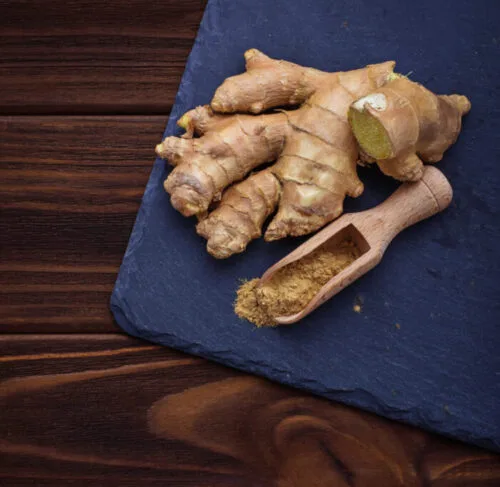Table of contents
Tropical Herbs List
Tropical herbs are those herbs that thrive in our tropical climate, the hottest and wettest place on earth. These are the herbs that we are growing in our garden.
With the right climate and knowledge, you can easily cultivate a variety of leafy greens to add flavor to your favorite culinary creations. Find out which herbs are best suited for your tropical climate and learn helpful tips for tending to them!
Below we have listed 12 herbs that will not just survive, but thrive in the tropics.
- Basil
- Cilantro
- Dill
- Galangal
- Garlic Chives
- Ginger Growing
- Lemongrass Growing
- Mint
- Stevia
- Thai Chili
- Tumeric
- Vietnamese Mint (laksa leaf)
The above 12 herbs are our favourites to grow. Harvest the taste of paradise with these amazing tropical herbs! Grow them for use cooking or make a delicious herbal tea to boost your wellness.
Tropical Herbs Australia
Things are always a little bit different in tropical Australia. Cere care for your herbs will vary a little from the wet season to the dry season. In the dry season you need to water once a day and we use mulch as well so that as much water as possible is retained and does not evaporate.
During the wet season you should ensure herbs that do not tolerate constant soggy soil have a chance to drain. So we suggest growing your herbs in containers or pots using well draining soil.
Insect pests and diseases are more of a problem during the wet season. This is due to the hot humid conditions.
The major pests in the tropics are leaf eating beetles, aphids and caterpillars. However, you can pick these off your plants at home, or if the challenge is bigger you can use a spray. Regular application of white oil or neem oil can help address these pests. These are effective organic pesticides. You can even make white oil at home.

Tropical Herb Garden
The tropical downpours of the wet season are not agreeable with many herbs. Therefore, you should use good soil with organic matter to retain the moisture, but also grow in a container or raised bed that will drain well.
You can grow herbs inside using natural light, by placing your pot near a window.
Fertilise your tropical herbs twice a month during the wet season and once a month during the dry season.
Are herbs grown in temperate climates?
Many herbs, including basil, chives, coriander, fennel, gotu kola, heliotrope, lovage, mint, parsley and tarragon all grow well in temperate areas. Most of these also grow in the tropics for most of the year, but may struggle during our hot, wet summer.
It is possible to grow herbs from the Mediterranean here in the tropics. However, you just have to grow those herbs during the dry ‘winter’ months and not the humid and hot tropical wet season.
Consequently, as this is the ‘dry season’ in the tropics you will need to water regularly.
Tropical Herbs and Spices
Health, savings and food security are really good reasons to grow your own herbs.
When you grow your own food, you know exactly what fertilisers and pesticides (if any) have been used on it. That is not the only health benefit, with most of these herbs you can pick off what you want for the evening dinner, while the plant keeps growing. So how fresh is that?
When it comes to food security, climate change is leading to unprecedented crop failures. Consequently, you cannot be certain the herbs you want will be on your supermarket shelf. So growing your own gives you security of supply.
Saving money is another great incentive to garden. Once you get some experience as a herb grower, it will be cheaper to grow herbs than buy them at the shops.

Tropical herbs and their uses
Some herbs are cloaked in mystery and have also been used for medicinal purposes. For example, ginger is believed to have been used by Indians and Chinese people as a tonic root for over 5000 years to treat various ailments. However, like most folks, we use it as a flavouring agent in our cooking.
While most tropical herbs add wonderful flavour to your cooking, they also have numerous health benefits. For instance rosemary is high in antioxidants and improves memory and concentration, while basil is a valuable source of vitamin C, and oregano has antibacterial properties.
Many herbs, such as basil, sage, and oregano, as well as lesser-known herbs like astragalus and sambucus, are said to have strong antiviral effects against a number of viruses.
Lavender is an aromatic shrub native to the Mediterranean. Lavender oil has antiseptic and anti-inflammatory properties that help to heal burns and insect bites. It is also popular for improving mood and promoting relaxation and has been scientifically proven to help reduce anxiety.
Best tropical herbs
There are some tropical herbs that are well worth knowing about.
Turmeric has been known as a medicinal plant for several thousand years in India, and is important to Ayurvedic medicine. It contains curcumin, a potent antioxidant and anti-inflammatory, so it is widely prescribed for conditions such as rheumatoid arthritis.
Thought to be native to Siberia, garlic has been widely used as a food and medicine across the West and East for many centuries. It is a proven killer of bacteria, fungi and viruses but is also said to lower blood pressure and cholesterol.
Ginko Biloba is one of the oldest living tree species, and a key herb in Chinese medicine used to create extracts and teas with many uses. It is best known for its ability to boost brain health, and may relieve memory loss and improve mood during the early stages of Alzheimer’s.
Tropical Spices
Tropical spices are aromatic and flavourful ingredients that thrive in the warm, humid climates of tropical regions. These spices are often integral to the culinary traditions of countries located in the tropics.
Tropical spices not only add flavour and aroma to dishes but also come with numerous health benefits. They are integral to many culinary traditions around the world, especially in regions where these spices are grown. Incorporating these spices into your cooking can enhance both the taste and nutritional value of your meals.
Tropical Permaculture
The three ethics at the core of permaculture are quite simple and don’t need much explanation:
- Care of the earth: in everyday language you probably more often hear “protect/save the environment”. It means the same thing: using renewable resources, recycling, minimising waste, building up soils rather than depleting them, conserving water and so on. Anybody who aims to do that is following that first permaculture principle or ethic.
- Care of the people: this means simply to look after yourself and after others. Health and well-being are important, so are learning, a sense of belonging, communication, trust and respect. All people should have access to what they need to live a safe and healthy life.
- Fair share: it’s what your mum tried to teach you many, many years ago. Only take what you need and share the rest. This permaculture ethic focusses on co-operation, networking, contributing to the community and on distributing resources and wealth.
But it also looks at reduction of consumerism and requires us to rethink our current ideas about growth and development. Sometimes this principle is written as “accepting limits to population and consumption”. We can’t go on consuming like we do without putting more thought into where things come from and how we can produce them sustainably, so they will still be available tomorrow.
Permaculture teaches us to observe nature, to understand our environment and so become more ecologically aware and responsible. The philosophy behind permaculture also looks at the global context, it is a big vision!

